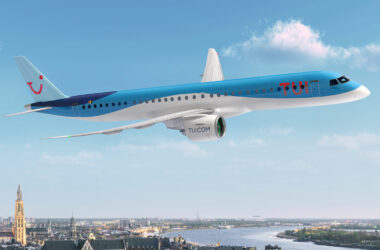Airbus has revised upward its Global Market Forecast for the next 20 years, predicting that the air travel market will absorb 42,430 new commercial aircraft by 2043.
Last year, the planemaker had estimated the demand for 40,850 new planes, that is, 1,580 more aircraft within a year.
Of these, 33,510 are narrow-body aircraft (compared to 32,630 in the 2023 forecast) and 7,980 wide-body aircraft and 940 new freighters.
Follow Air Data News: WhatsApp | Google News | Instagram | LinkedIn | Twitter | Facebook

As has been pointed out for some time, the Asia/Pacific region, including China, will account for the majority of demand, no less than 46% of new planes.
China alone is expected to receive 9,520 aircraft (22.4%), surpassing Europe and North America.

The Middle East region, in turn, will have the largest share of wide-bodies in the world, with 42% of aircraft with two aisles.
Single-aisle aircraft will continue to dominate the market with widespread fleet renewal. According to Airbus, only 2,950 aircraft in service today will continue flying in 2043.

Around 27,500 open orders
Of the 33,510 new single-aisle jets, 14,810 will be replacements for old planes and 18,700 will represent service expansion. However, 13,070 units are already in the manufacturers’ backlog and 20,440 will be future orders.
Among the wide-bodies, 430 aircraft will continue to fly within 20 years, 3,850 will be replaced by new aircraft and no less than 4,130 orders relate to the growth in demand for this type of aircraft.

Airbus therefore sees room for 6,130 new orders for wide-bodies, as there are currently 1,850 aircraft already on order.
Ultimately, the air cargo market will experience a slightly different situation. Of the 2,470 aircraft that will be introduced into service, 1,530 will be passenger planes converted to cargo (P2F).

Only 940 jets will be freighters manufactured for this purpose. The fleet in 2043 is expected to reach 3,360 aircraft, around 50% larger than in 2023.
In total, Airbus says there is open demand for 27,510 aircraft within 20 years.






